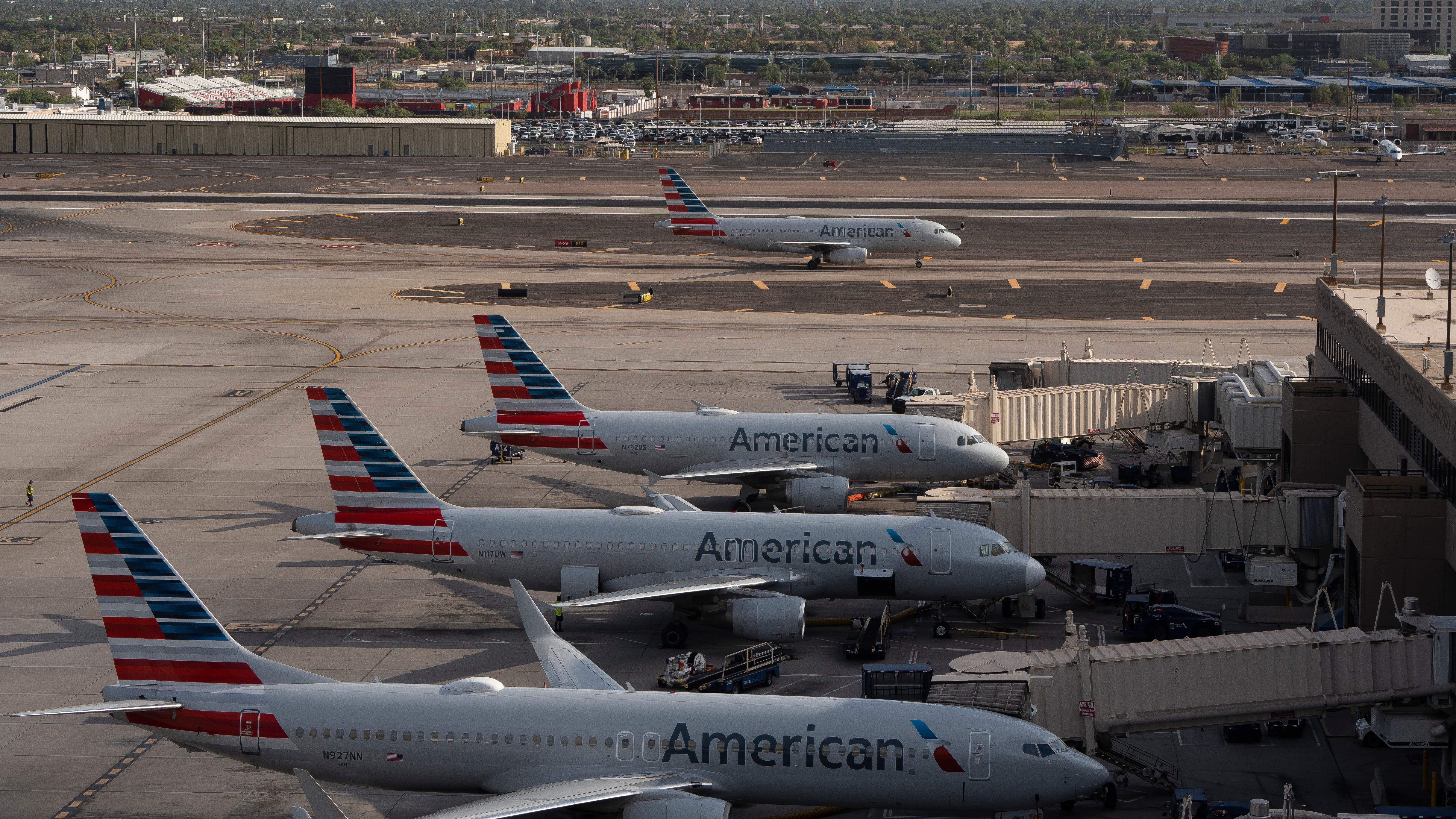Planes Are Constantly Almost Hitting Each Other
The New York Times took a deep dive into FAA data on near-misses between planes.
So, as it turns out, airplanes are nearly crashing mid-air far more regularly than anyone initially thought. After a slew of almost-crashes over the past few months, The New York Times decided to take a deep dive into the issue. In fact, there have been at least 46 close calls involving commercial airlines in the last month alone. These incidents have reportedly been highlighted in preliminary FAA safety reports, but they haven't been publicly disclosed.
The outlet says that while there haven't been any major U.S. plane crashes in over a decade, potentially dangerous incidents occur far more frequently than anyone has realized. Industry insiders say it's a sign that the safety net is under "mounting stress."
The Times says that so far this year, close calls involving commercial airlines have been happening — on average — multiple times per week, according to the outlet's analysis of internal FAA records and thousands of pages of federal safety reports and interviews with over 50 current and former pilots, air traffic controllers and federal officials. For the most part, these incidents are reported happening near or at airports, and they are the result of human error. A big factor has been mistakes made by air traffic controllers, which are exacerbated by a nationwide shortage.
From The New York Times:
In addition to the F.A.A. records, The Times analyzed a database maintained by NASA that contains confidential safety reports filed by pilots, air traffic controllers and others in aviation. The analysis identified a similar phenomenon: In the most recent 12-month period for which data was available, there were about 300 accounts of near collisions involving commercial airlines.
The number of such near misses in the NASA database — which is based on voluntary submissions that are not independently corroborated — has more than doubled over the past decade, though it is unclear whether that reflects worsening safety conditions or simply increased reporting.
Aviation authorities have said that the U.S. air travel system — responsible for nearly three million passengers per day — is the safest in the world. However, current and former air traffic controllers have said in interviews that close calls were happening so often that they feared it was only a matter of time until some sort of catastrophic crash happened.
"Honestly, this stuff scares the crap out of me," a longtime airline captain, who previously was a carrier fighter pilot, reported to NASA in November. An air traffic controller had cleared the pilot's flight to land on what looked like "a collision course" with another passenger plane. (NASA redacts entries' identifying details, such as the airlines and pilots' names.)
"This has really opened my eyes to how the next aviation accident may play out," another pilot wrote to NASA after a close call on a runway in January.
"Is it going to take people dying for something to move forward?" a controller wrote the same month after barely preventing a midair collision.
NYT says that the U.S. aviation network has long been safeguarded by an extensive network over overlapping technological and human safety nets. It's commonly called the Swiss cheese model. Basically, if a problem slips through one hole in a layer, it will be caught by another.
Anyway, there is a lot more to this story than what I've laid out here. Be sure to head over to The New York Times for an even deeper dive into what's causing these issues.
